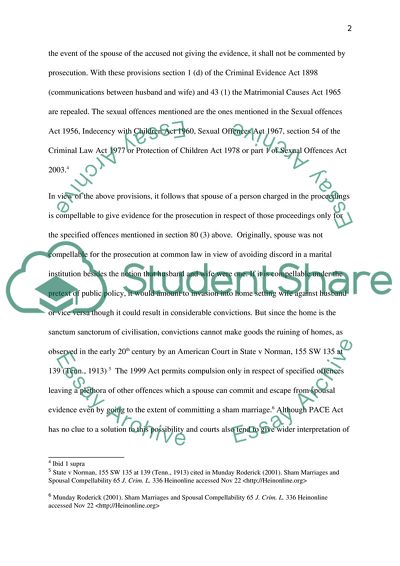Cite this document
(The Current Law on Spousal Compellability Literature review - 1, n.d.)
The Current Law on Spousal Compellability Literature review - 1. https://studentshare.org/law/1745324-critically-consider-whether-the-current-law-on-spousal-compellability-is-justifiable
The Current Law on Spousal Compellability Literature review - 1. https://studentshare.org/law/1745324-critically-consider-whether-the-current-law-on-spousal-compellability-is-justifiable
(The Current Law on Spousal Compellability Literature Review - 1)
The Current Law on Spousal Compellability Literature Review - 1. https://studentshare.org/law/1745324-critically-consider-whether-the-current-law-on-spousal-compellability-is-justifiable.
The Current Law on Spousal Compellability Literature Review - 1. https://studentshare.org/law/1745324-critically-consider-whether-the-current-law-on-spousal-compellability-is-justifiable.
“The Current Law on Spousal Compellability Literature Review - 1”. https://studentshare.org/law/1745324-critically-consider-whether-the-current-law-on-spousal-compellability-is-justifiable.


